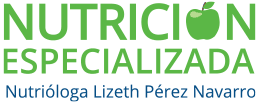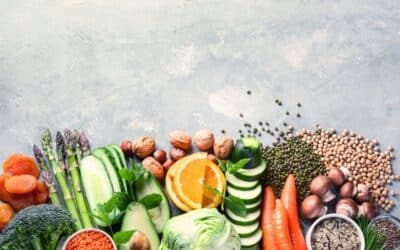Polycystic Ovary Syndrome is the common hormonal disorder, affecting approximately 5-18% of women. It is characterized by various signs and symptoms, which makes diagnosis challenging, including:
- Highly irregular menstrual cycles.
- Amenorrhea: Absence of menstruation.
- Oligomenorrhea: Reduced frequency of menstruation.
- Polimenorrhea: Frequent menstrual periods (shorter than 25 days).
- Hypermenorrhea: Prolonged, heavy, and painful menstruation.
- Aggravated Premenstrual Syndrome (PMS).
- Fertility problems.
- Excess male hormones (hyperandrogenism).
- Overweight and/or high body fat percentage, especially in the abdominal area.
- Insulin Resistance
More than 50% of women with PCOS have difficulty regulating their body weight and exhibit signs of overweight/obesity. Having low insulin sensitivity is associated with a greater tendency to accumulate fat, especially in the abdominal area.
What foods can be added to the diet of a person with PCOS?
- Whole Carbohydrates: These provide fiber and have a lower glycemic index, causing only a slight increase in blood glucose levels compared to refined or simple sugars. Examples include quinoa, buckwheat, millet, oats, corn, and amaranth, taking into account their impact on blood glucose levels (glycemic index).
- Legumes: Rich in fiber, they have a low glycemic index and provide satiety, which is related to weight loss. Several studies have shown that their regular consumption (at least 2-3 times a week) can help improve hormonal balance. They are versatile and can be incorporated into various dishes.
- Protein: Generally, proteins are satiating, and their consumption is associated with weight and fat loss. Protein recommendations should be personalized The main quality sources are lean white meats, eggs, skim milk, etc.
- Healthy Fats: Omega-3 fats are essential, as they improve both insulin sensitivity and blood cholesterol levels. It is essential to incorporate the consumption of healthy fats to raise HDL cholesterol levels. These fats can be found naturally in nuts, seeds, egg yolks, avocado, or extra virgin olive oil.
What foods are not recommended?
- Simple Carbohydrates: They rapidly raise blood glucose levels, increasing insulin resistance and body weight. They are found in ultra-processed products such as pastries, sugary cereals, chocolate, ice cream, pastries, sweets, fruit juice, sodas, and sugar itself.
- Refined Carbohydrates: These carbohydrates have little nutritional value. They provide little nutrients beyond starch. During refinement, they lose many micronutrients and fiber, making them uninteresting foods.
- Pastries: Rich in added sugars, saturated and/or trans fats, and refined flours. They have a high glycemic index, worsening insulin resistance and having a very high caloric profile, making them especially detrimental for women with PCOS. Examples include sweets, cookies, and pastries.
- Dairy: Its consumption is controversial, but there is evidence that milk can contribute to increased androgens, worsening acne and hirsutism. This association is not found with fermented dairy products, as they generate less activation of IGF-1.
- Sodas and Alcohol They raise blood glucose levels, worsen insulin resistance, and have a detrimental effect on our health.
Women with PCOS often have a higher tendency to suffer from chronic stress. They have higher levels of ACTH and cortisol (stress hormone), and in some cases, they may experience anxiety and depression.
Usually, 40-60% of women with Polycystic Ovary Syndrome are overweight and often face more challenges in losing weight than women without it. Having low insulin sensitivity is associated with a greater tendency to accumulate fat, especially in the abdominal area.






